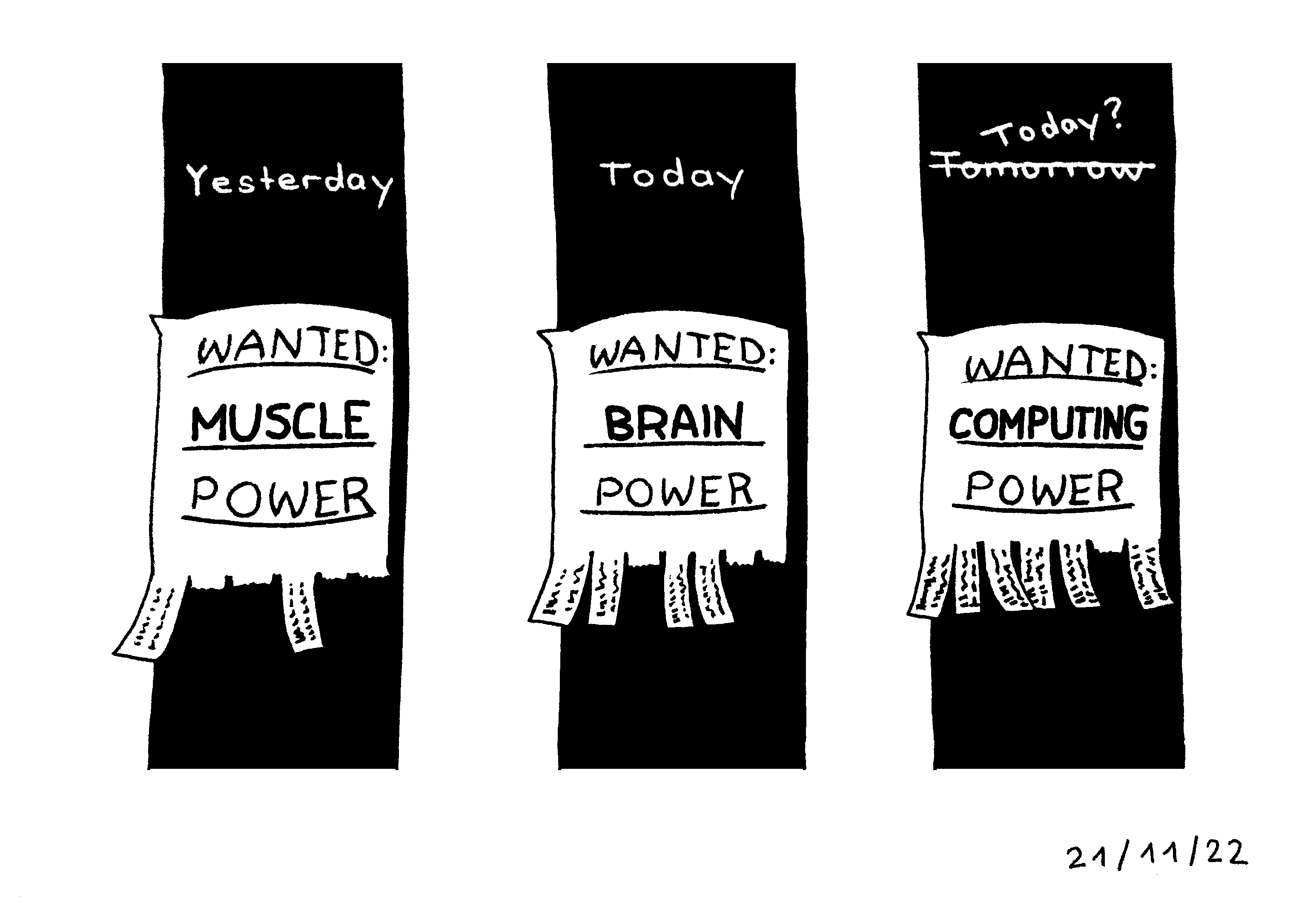Are we going to be irrelevant?
21. November 2022 • 2 Minuten
If all visions of the future are essentially about technology, you start to wonder: What relevance would I still have for those who hold control over these technologies?
Inspired from:
Ordinary people may not understand artificial intelligence and biotechnology, but they can sense that the future is passing them by. In 1938 the condition of the common person in the USSR, Germany or the USA may have been grim, but he was constantly told that he was the most important thing in the world, and that he was the future (provided, of course, that he was an ‘ordinary person’ rather than a Jew or an African). He looked at the propaganda posters – which typically depicted coal miners, steelworkers and housewives in heroic poses – and saw himself there: ‘I am in that poster! I am the hero of the future!’ In 2018 the common person feels increasingly irrelevant. Lots of mysterious words are bandied around excitedly in TED talks, government think tanks and hi-tech conferences – globalisation, blockchain, genetic engineering, artificial intelligence, machine learning – and common people may well suspect that none of these words are about them. The liberal story was the story of ordinary people. How can it remain relevant to a world of cyborgs and networked algorithms? […] Perhaps in the twenty-first century populist revolts will be staged not against an economic elite that exploits people, but against an economic elite that does not need them any more. This may well be a losing battle. It is much harder to struggle against irrelevance than against exploitation.
— Yuval Noah Harari (21 Lessons for the 21st Century , Chapter 1: Disillusionment)

